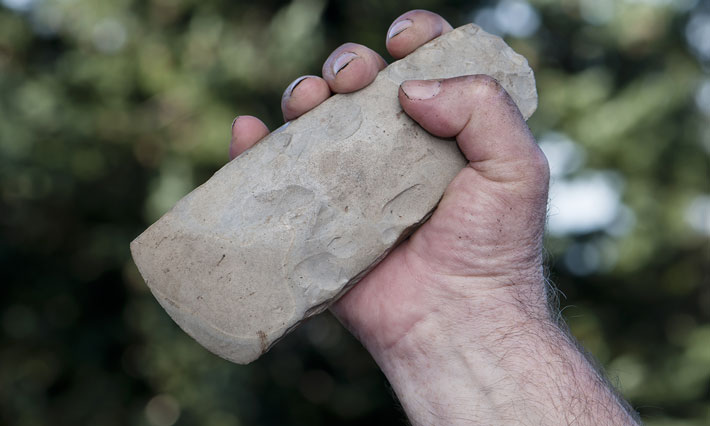Kurdish plans to recapture a vital town on Syria's border with Turkey could transform the fight against the jihadists.
by Patrick Cockburn
Syrian Kurdish leaders plan to capture the last border
crossing point between Syria and Turkey held by Isis, making it
impossible for jihadist volunteers from Europe and elsewhere to reach
Isis-held territories.
The seizure of the frontier town
of Jarabulus on the Euphrates River is certain to anger Turkey, which is
already alarmed by the rise of a Syrian-Kurdish state-let in northern
Syria, aided by US air strikes and fielding strong military forces.
The
loss of Jarabulus would isolate Isis, bringing to an end its ability to
bring in thousands of fanatical Islamic fighters who have been crossing
from Turkey into Syria without significant hindrance over the last four
years. ISIL has frequently used these foreign volunteers as suicide
bombers driving vehicles packed with explosives as an essential element
in its military strategy.
“We
have plans to liberate Jarabulus,” said Idris Nassan, the vice-minister
for foreign affairs of Kobani, the Kurdish enclave where the YPG
(People’s Protection Units) defeated ISIL, told
The Independent.
He pointed out that “Jarabulus is the last Daesh [Isis] border crossing
with Turkey” since the YPG seized its only other border crossing point
at Tal Abyad, east of Kobani, in June.
Mr Nassan quoted
the overall commander of the YPG, General Sipan Hamo, as saying the
attack on Jarabulus would “be in coordination with the US because we are
part of the international coalition. They fight in coordination with
us”. This may present the US with a dilemma because in July it did a
deal with Turkey whereby it uses Incirlik airbase in Turkey for air
strikes against Isis. But the Turks want to stop the YPG advancing west
of the Euphrates. The Syrian Kurds already control half of Turkey’s 550
mile-long border with Syria.
The Syrian Kurds are
confident they can defeat Isis, which dominates the rest of eastern
Syria, after they withstood a four-and-half-month siege of Kobani by
ISIL that ended in January. The success of the YPG came because its
fighters fought ferociously against the Islamic militants and, since
October last year, its commanders have been able to call in US air
strikes.
It was the support of some 700 US air strikes
that helped the YPG win the battle for Kobani, though it reduced this
small city to a seascape of shattered concrete where buildings have been
pounded into rubble by the force of the bomb blasts. In between the
ruins there are individual shops and houses that survived intact, but 70
per cent of the city is destroyed and construction workers are only
slowly making an impact.
Victory at Kobani boosted the
self-confidence of the YPG, which is the only ground force in Syria or
Iraq that has regularly defeated Isis. After the end of the siege, the
YPG won back the rest of Kobani canton, including 380 villages. And in
June it captured the border town of Tal-Abyad which Isis had held for
more than two years. This linked up the two main Kurdish cantons. Its
capture was also important because it is only 100km (62 miles) north of
Raqqa, the Isis de-facto capital in Syria.
Important
though Tal Abyad was to Isis, it did not commit many fighters to holding
the town, having apparently decided that it was indefensible. YPG
forces were advancing from west and east towards the road linking it to
Raqqa. A 21-year-old YPG fighter called Misro Munzer, hit in the knee by
a machine gun bullet in a later battle and interviewed in a military
hospital in Kobani, said that he had fought at Tal Abyad where “Daesh
[Isis] did not fight hard”.
He explained that the more
battle-hardened Isis men had retreated leaving only a remnant of 25 men
without much combat experience who were demoralised and confused by US
air strikes.
There is no doubt that YPG light infantry
backed by US air power are highly effective and ISIL cannot hold fixed
positions against a combination of the two. ISIL suffers heavy
casualties when it tries to do so. But this does not mean that it cannot
hit back as became evident on the drive east from Kobani, on what was
meant to be an entirely safe road going to al-Qomishli, the capital of
the largest Syrian Kurdish enclave.
There were some
early signs that the road was not quite as secure as we had been told.
As we entered an Arab village called Qayyil, 15km west of Tal Abyad, we
were stopped by a large detachment of YPG troops who said they were
conducting a search. One of them told us that “we have information that
four or five Daesh [ISIL] fighters have penetrated the village and we
are looking for them”. Other YPG fighters were guarding crossroads and
entry points into Qayyil.
We drove on to Tal Abyad, a
town which locals said had once had a population that was half-Arab and
half-Kurdish, Turkoman and Armenian. Three months ago it had been in the
hands of Isis. We wanted to look at the closed border crossing with
Turkey and the police agreed to take us there.
But,
as we followed a police vehicle down the street, a Kurdish woman in a
black robe rushed out of a house shouting that she needed the police and
our escort stopped to help her. She said that she and her daughters had
been sitting in the courtyard of her house when “a man dressed in black
with a beard who looked like Daesh had climbed over a wall and run past
us”. The police said that there were still Isis hiding in the many
abandoned houses in Tal Abyad.
These two incidents were
not too surprising since Tal Abyad and nearby villages had only recently
been captured by the Kurds. But the next town on our route, Ras al-Ayn,
had been held by the YPG for two years. But, soon after we had entered,
there were two bangs that sounded like gunshots close together, but
then we saw a cloud of dense smoke rising from a checkpoint just ahead.
Kurdish security men blocked the road in front of us within a couple
minutes, turning back vehicles and news soon spread that there had been a
suicide car bomb which killed at least five people.
It
also emerged that there had been a suicide bombing just behind us at a
checkpoint at the entrance to Ras al-Ayn that we had just driven
through. A man on a motorbike had blown himself up but had failed to
kill or injure anybody.
These incidents are all probably
an attempt by Isis to show that it is still to be feared despite its
recent defeats. In June it sent a detachment into Kobani disguised in
Kurdish and Free Syrian Army uniforms that killed over 200 men women and
children.
ISIL has in the past launched diversionary
raids to keep its enemy’s troops dispersed before the main assault on a
single target. But if the YPG tries to capture Jarabulus and cut ISIL’s
last exit to the outside world, the Islamic militants will probably have
to fight.


















































